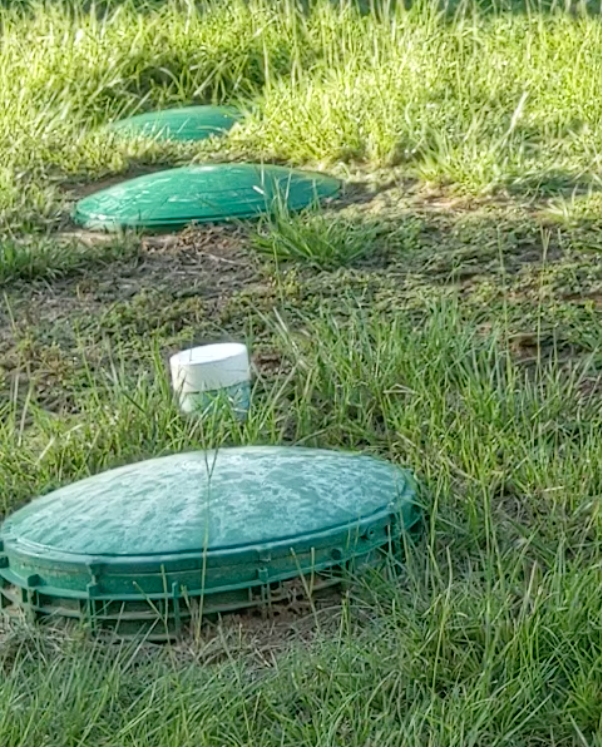If you are thinking of moving to your own homestead, you may be thinking, which homestead septic system should we choose? You probably have questions and preconceived ideas about what a septic system is.



The Need for a Septic System in Rural Living
Numbers vary, but estimates say that 60 million or more people are on septic – 1 in 5 homes – 25% of the nation. It is a environmentally sound solution, distributed, anchored in freedom and it’s not only in rural areas. Oh and it shouldn’t smell bad either. Read about other myths here, and here, and here.
I’m going to assume that this is your first septic property. Living rurally means that you might not have access to a municipal sewage system, making a septic system a necessity. A septic system efficiently treats and disposes of wastewater from your home, including toilet, shower, and kitchen waste. Two common types of septic systems are the conventional (or anaerobic) septic system and the aerobic septic system. In this guide, we’ll look at conventional and aerobic systems and help you make an informed decision for your rural abode.
Conventional Septic Systems
Conventional septic systems operate in an anaerobic environment, meaning they rely on naturally occurring bacteria that thrive in the absence of oxygen to break down solids in the septic tank.
The system consists of a septic tank and a drain field. Wastewater from your home flows into the septic tank, where solid waste settles to the bottom, and liquids move into the drain field for further treatment in the soil.
Advantages
– Simplicity: Conventional systems are straightforward in design and function.
– Lower maintenance costs: Generally, conventional systems have lower upfront costs compared to aerobic systems.
Considerations
– Regular pumping is required to remove accumulated solids.
– Limited treatment of wastewater compared to aerobic systems.
Aerobic Septic Systems
Like a mini water treatment plant, Aerobic septic systems introduce oxygen into the treatment process, fostering a more robust microbial environment that breaks down waste more efficiently.
Components include an aerator, a treatment chamber, and a drain field. The aerator introduces air into the system, promoting the growth of aerobic bacteria that digest organic matter more thoroughly.
You may choose to swap the drain field for a spray system, we are actually on an Aerobic Spray Septic System that uses sprinklers instead of a drain field. A spray system should keep your grass green and well watered in the summer. Check your local regulations for rules around spray vs drip/drain field in your area. Regulations around spraying usually have to do with protecting the environment and water sources.
Advantages
– Enhanced treatment: Aerobic systems provide more efficient treatment of wastewater, producing cleaner effluent.
– Smaller drain field footprint: Aerobic systems typically require a smaller drain field, making them suitable for properties with limited space.
Considerations
– Higher upfront costs: Aerobic systems tend to have higher installation and maintenance costs.
– More complex: The additional components make aerobic systems more complex, requiring regular maintenance and monitoring.
Choosing the Right System for Your Rural Home
Consider Your Property
– Evaluate the size, soil composition, and layout of your property to determine the most suitable system.
– If space is limited, an aerobic system might be a more practical choice.
Budget Considerations
– Assess your budget for installation and ongoing maintenance costs.
– While conventional systems are generally more budget-friendly initially, consider the long-term benefits of enhanced wastewater treatment provided by aerobic systems.
Local Regulations
– Familiarize yourself with local regulations and permitting requirements for septic systems in your area.
– Some areas may have specific guidelines or restrictions on the type of septic system allowed.
Additional Considerations
Maintenance
Like any system, a septic will need occasional maintenance. Your local laws and regulations may vary, but likely it should be inspected regularly by professionals or yourself. You can sign up with a local service which may inspect it for you every quarter or six months. If your system requires chlorine tablets, you can either add those yourself or have it done during the regular inspections, price on these can vary greatly so shop around. I have purchased Pro Chlor Tablets when they were cheaper, but Norweco tablets seem to have good reviews and are competitively priced at the moment. Every so often, usually between 3-5 years you will have your system pumped to get out the sludge. You can choose to go longer if your sludge level is still low. Shop around as the price to pump varies greatly between vendors.
Lifestyle changes
You may have to change your behaviors to the ‘septic lifestyle’. Too much food matter can cause buildups in the system so you may have to pump more regularly if you are using a garbage disposal or if you are one who puts every thing down the drain.
There are also a list of No-No’s that should never go down the drain to the septic such as coffee grounds, grease, etc. I’ll refer you to this video from the EPA and also their website for more information.
Conversion Kits
If you find yourself in a sticky situation with a conventional system or a failing system. Speak with a professional about conversions. There are some conversion kits that can convert a conventional to aerobic. I don’t have direct experience with these kits but a professional in your area can advise you of the options. It may be viable to convert rather than installing a whole new system.
Electricity
Are you off grid? Solar? You may want to think about the wattage needed to run a system or maybe go conventional so you don’t need electricity to pump air or water through the system.
Conclusion
Choosing between a conventional and aerobic septic system is a crucial decision for rural homeowners. Both systems have their advantages and considerations, and the choice depends on your property, budget, and local regulations. For additional information and pictures of each system, see this article about Septic Systems in Texas. By understanding the differences between these systems, you can make an informed decision that ensures efficient wastewater management for your rural home, allowing you to fully enjoy the peace and serenity of country living.







Leave a Reply